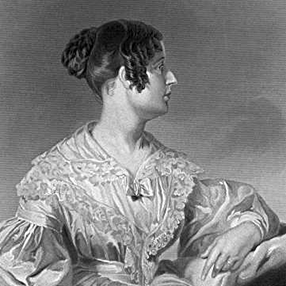Hymn of Nature
O! Blest art thou whose steps may rove
Through the green paths of vale and grove
Or, leaving all their charms below,
Climb the wild mountain’s airy brow!
And gaze afar o’er cultur’d plains,
And cities with their stately fanes,
And forests, that beneath thee lie,
And ocean mingling with the sky.
For man can show thee nought so fair,
As Nature’s varied marvels there;
And if thy pure and artless breast
Can feel their grandeur, thou art blest!
For thee the stream in beauty flows,
For thee the gale of summer blows;
And, in deep glen and wood-walk free,
Voices of joy still breathe for thee.
But happier far, if then thy soul
Can soar to Him who made the whole,
If to thine eye the simplest flower
Portray His bounty and His power:
If, in whate’er is bright or grand,
Thy mind can trace His viewless hand,
If Nature’s music bid thee raise
Thy song of gratitude and praise;
If heaven and earth with beauty fraught,
Lead to His throne thy raptured thought;
If there thou lovest His love to read;
Then, wand’rer, thou art blest indeed!
This poem is in the public domain. Published in Poem-a-Day on March 9, 2025, by the Academy of American Poets.
“Hymn of Nature” by Felicia Dorothea Hemans appears in the anthology The Young Lady’s Offering; Or Gems of Prose and Poetry (Phillips, Sampson & Company, 1851). In her article, “Hemans, Wordsworth, and the ‘Literary Lady’” (Victorian Poetry, Fall 1997, Vol. 35, No. 3), professor of English at Saint Mary’s University Deborah Kennedy wrote: “The contradictory nature of the life of the nineteenth-century woman poet can be effectively illustrated by the literary and personal relationship between Felicia Hemans and William Wordsworth, two of the most popular poets of the Victorian period. […] Wordsworth disliked Hemans’s ‘too elaborate and studied conversation,’ which he found characteristic of ‘many literary ladies.’ It is possible that she seemed to him ‘elaborate and studied’ because she did not conceal her learning and spoke with the authority of her publicly recognized position rather than showing a proper female deference.”

